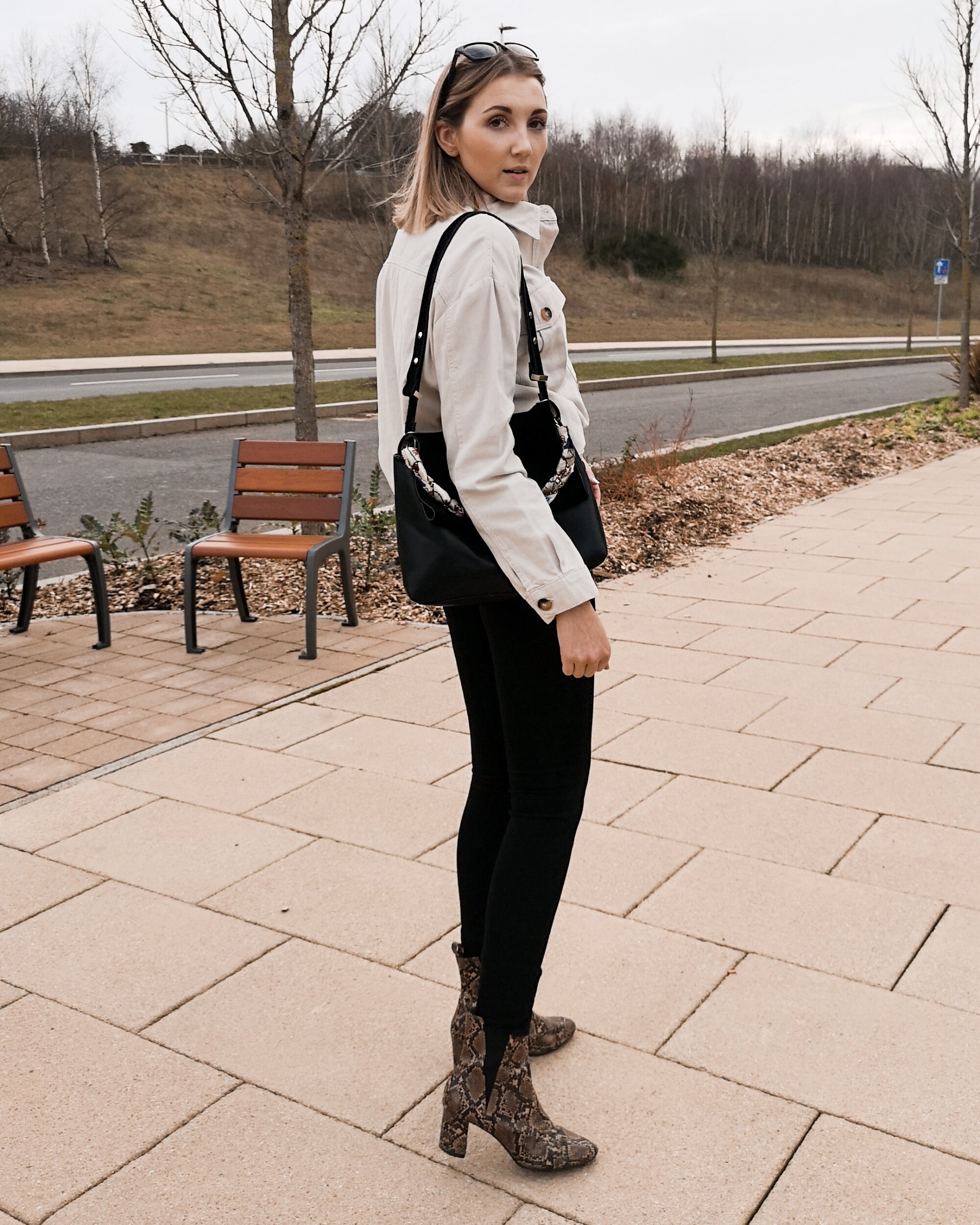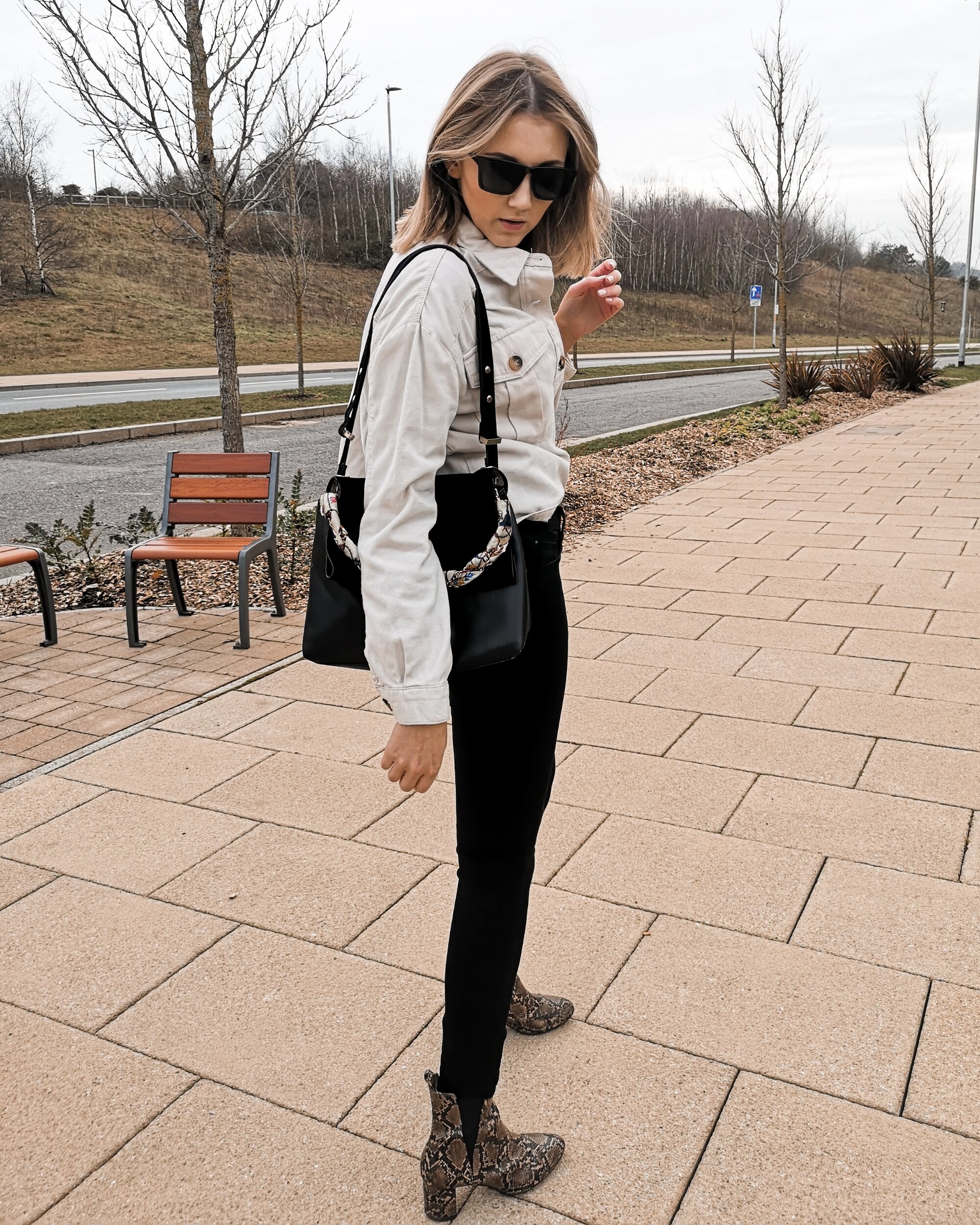A Beginners Guide To Secondhand Shopping
At the start of the year I decided to put more effort into making my wardrobe a bit more planet-friendly. Aside from taking care of what you own to make it last longer, one of the best ways easiest ways to do this is shopping secondhand (if you don't fancy going on a total shopping ban). Previously I've always been a bit nervous of secondhand shopping. From the often incorrect perception that things will be dirty to just simply not knowing where to start, it can all feel a bit daunting. Over the past 6 months or so I've updated my wardrobe with plenty of secondhand items. I love them just as much as when I buy new, I've never had an issue with any of them and it's definitely eliviated some of the guilt I was feeling about constantly shopping new.
Secondhand shopping opens up a whole new world. It's exciting to search for that perfect item, not knowing quite what you'll find. Scrolling eBay and setting up saved searches is my new alternative to mindless ASOS shopping for sure. I know there's a certain priveledge that goes along with shopping secondhand through choice and not necessity, and also being a standard-sized able-bodied woman means shopping vintage is far easier for me. It's something I always try to be mindful of. Avoiding shopping new where possible is undoubtly better for the planet though. Not only do you prevent another item ending up in landfill but you also don't have the associated water, carbon and human labour impact associated with the garment.
So much of what I've learnt about secondhand shopping has been through trial and error. Sure some things maybe didn't pan out quite how I'd hoped but then you can either pass them on or resell to give them a better home. If you’re interested in secondhand shopping but not really sure where to start there are a few easy things to keep in mind.
Keep an open mind: I've found the easiest way to find something I love is to keep an open mind about what might come up. Keeping search terms broad means you'll get the most variety and you never know when that will open the door to you finding a great bargain or the perfect thing you'd never even considered. When you’re going through charity shops or vintage shops you’re even less likely to find the exact item you wanted so give everything a chance and try it on.
Be vigilant: If you're buying online then make sure you're checking measurements, whether there is any damage, whether it comes from a smoke & pet free home and what the actual wear and tear is like. Any good seller should always be happy to answer questions about measurements and quality so make sure you double check. After all, a lot of sellers wont accept refunds. If you're buying secondhand designer or luxury pieces make sure you have all of the authentication information and you're using a trusted platform such as Vestiare Collective.
Set your budget early: Before you start bidding or scouring the charity shops, set a budget in your own head. It's so easy to get blinded by the idea of a bargain and end up spending more on something that you'd actually normally be willing to spend. I set my budgets (including postage!) before I start bidding so they're clearer in my head. It’s an easy way to stop the temptaion of a bidding war just because “it’s only an extra 50p”. If I'm out-bid then it just wasn't meant to be.
Don't bid too early: I've made the mistake in the past of getting over excited, bidding on something early and pushing up the price by entering a bidding war. Now I list something as a watched item and a few minutes before the end I keep an eye on it and try to place a winning bid as close to the end as possible. You need to have quick reactions and know that you risk missing out if you can't re-bid in time but it's how I've won a lot of great items in the past few months. It also gives you more time to think about whether you really want the item and how much you’re actually willing to spend.
Still ask if you really need it: Just because it’s secondhand doesn’t mean you need it all and it doesn’t mean that you should fill your entire wardrobe. Still ask yourself if you’ll actually need it, wear it or have anything else that goes with it. If the answer is no then don’t pick it up, leave it for someone else to find and love.
You won’t find everything, and that’s ok: Secondhand shopping is great, clearly I think so, but I also know there are some bits I can’t find secondhand, some things I don’t want to buy secondhand (think underwear, socks etc) and I’m simply not immune to the new launches from every shop on the highstreet. If you’re generally making changes though, being more considered about your purchases and still trying to have a positive impact I really do think the occasional new purchase is ok. Sometimes there will be occasions where you just can’t find an option, maybe you’re heading to a wedding or a similar event, so long as whatever you buy is something you’re willing to wear again and again then it’s still better than an impulse purchase.
I've become eBays biggest fan and you can't keep me away from a charity shop, a few months ago I never would have guessed it. Secondhand shopping might not be for everyone or even for every purchase but if you aren't in a hurry and you want to do something that's kidner to the planet and your wallet then it's a good place to start. It's helped to open up a whole new level of inspiration and given me a much better way to refresh my wardrobe.




